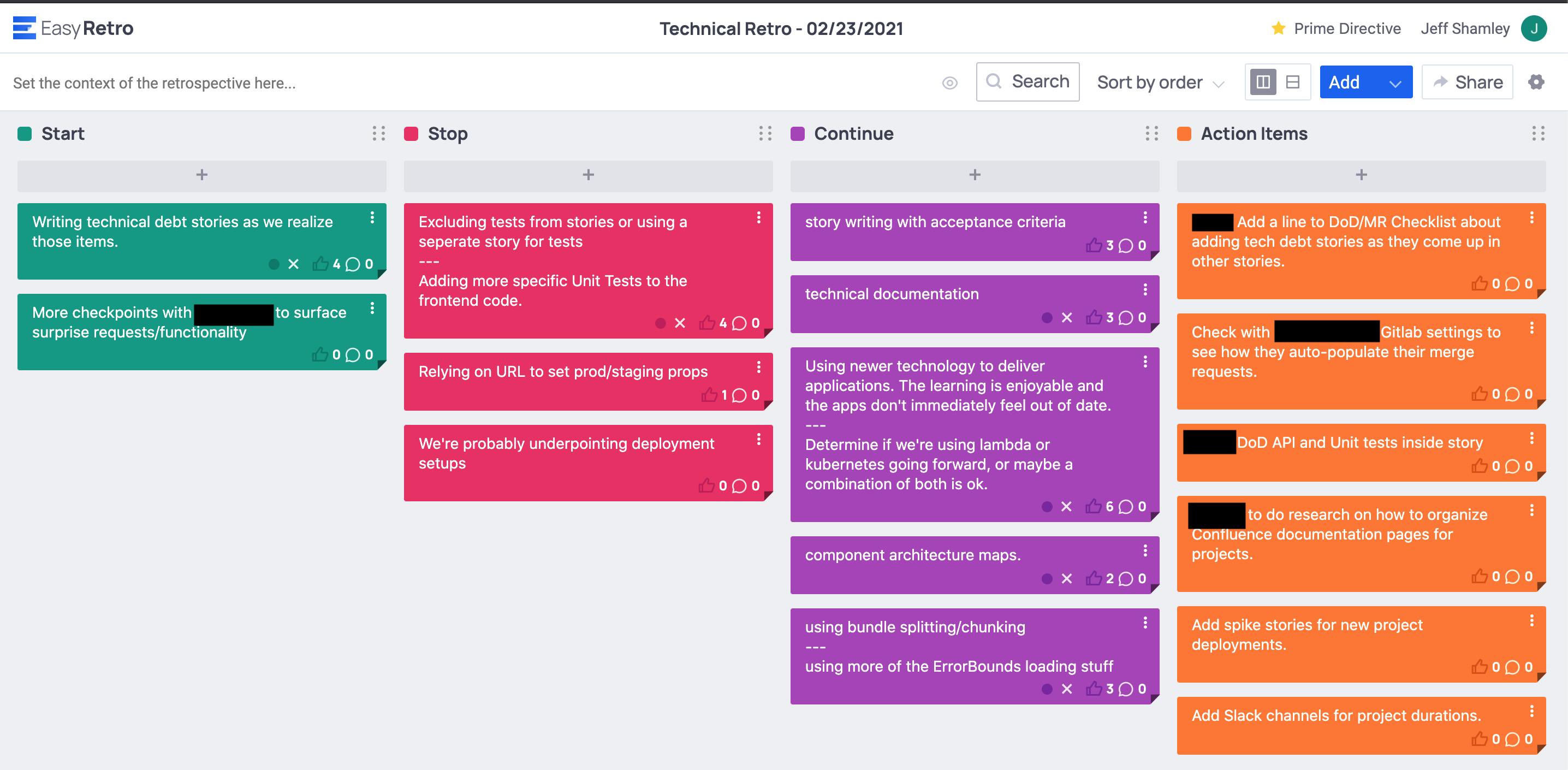Something that we have added to our team in order to better our processes is the technical retro. These meetings are generally an hour long, happen shortly after a major release and they follow the same basic flow as our sprint retros.
I believe that technical retros should be infrequent and pointed. What I mean by that is to only have a technical retro after finishing a large feature or a major release and only talk about the work that happened during that project. Tech debt or existing technical headaches are not included in the tech retro, everyone is already aware of those problem areas and rehashing them isn't helpful here. What we are trying to accomplish here is honing our procedures around how we build complex systems.
What went well? What didn't go well? Who stood out on this project and deserves praise? What would you like to start doing? What should the team stop doing?
On our team we use Easy Retro to facilitate this, we also use Easy Retro for our sprint retros and the setup is basically the same. You don't have to use the below template, there are many to choose from but here is an example of the lanes we used on a recent tech retro. Read more about Easy Retro's features.

This is a collaborative process and I believe it is best to have someone outside your team, who is technically minded, run this meeting for you. The meeting coordinator needs to be well removed from the processes in question. I have found when the Tech Lead or another team member runs this meeting it turns into a situation where that person is leading the discussion, which is not what we want. Every team member needs to be heard and is on even footing in this meeting. The goal is to improve team processes, not impose one person's ideas or be dictated on how to improve.
The main output of this meeting are a set of action items to improve your process and allow the team to build better software more quickly. Ultimately our goal as product engineering teams is to make software that delights our user and works for the business. The best way to get to those lofty team goals is through continual learning and improvement.
